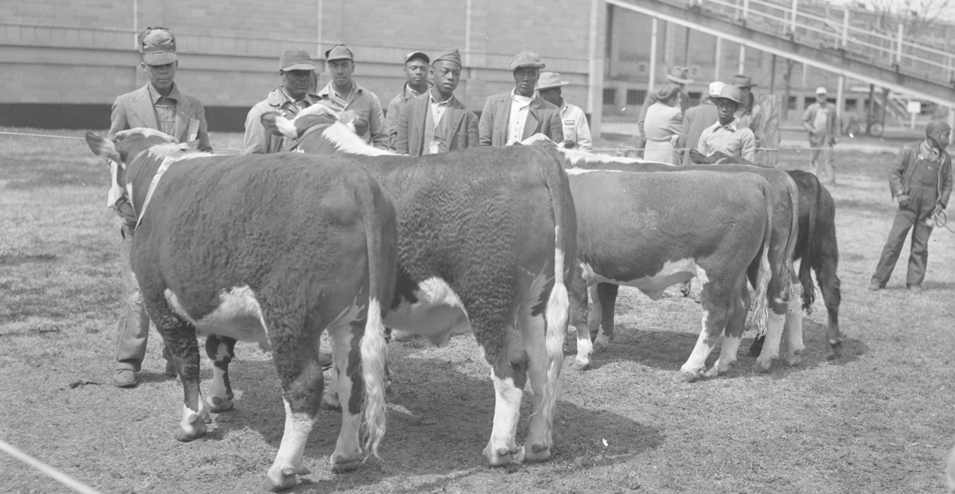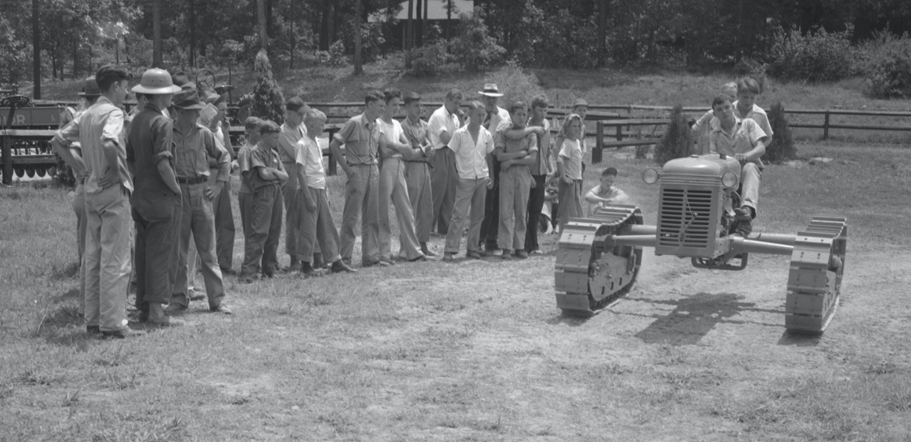Bringing University Knowledge to the Public
The Smith-Lever Act of 1914 codified into federal law, and provided funding for, outreach endeavors at the Land-Grant Universities founded by the Morrill Act of 1862. The act was introduced by Senator Hoke Smith of Georgia and Representative A. F. Lever of South Carolina to expand the vocational, agricultural, and home demonstration programs in rural America.
The appropriation for Cooperative Extension as established by Smith-Lever was unique in that it set up a shared partnership among the federal, state, and county levels of government. A formula funding mechanism was designed to ensure that there was support from each of the levels to help the fledgling system achieve stability and leverage resources.
The funding would flow from Congress to the United States Department of Agriculture and then out to the Land-Grant Universities to be matched with monies from the states and counties receiving programs. Since its inception, UGA Extension has been dedicated to serving citizens with the latest information and programs while addressing needs and technologies as they change over time.
Cooperative Extension has taught life skills and lessons to millions of young people through caring adult leaders.

Since its inception, 4-H has stood behind the idea that youth is the single strongest catalyst for change. From its rural roots in agriculture, the club has grown into a global organization that teaches kids life skills.
Georgia 4-H’s legacy traces its roots back to corn clubs, which were essentially corn growing contests for young boys held by school supervisors, either superintendents or teachers.
While farmers were slow to take up the latest practices recommended by agricultural specialists, the youth implemented this information into their corn growing through the corn clubs. Eventually, farmers realized the boy’s increased yields stemmed from the new trends, and they too became influenced by the Cooperative Extension agents.
The clubs became a nationwide movement. Through centralized efforts of USDA and the Cooperative Extension System, 4-H was officially created and has become one of the largest and well-known youth development organizations today.
Cooperative Extension has brought the latest agricultural research and education from land-grand universities to farmers and businesses.

At the turn of the 20th century, there was a widespread need for assistance and training for rural farmers. The farm demonstration work and success of Seamen A. Knapp, the first agent and director of Cooperative Extension for USDA, paved the way for the Cooperative Extension System that exists nationwide today.
In Georgia, agriculture and natural resources agents continue to work with farmers through traditional face-to-face workshops as well as through new technologies like online classes and smart phone applications.
Agents also help increase awareness and appreciation of the state’s environmental assets. They protect these resources by offering expertise in topics including invasive species, pollution prevention, and soil and water conservation. Finally, they are responsible for training volunteers in backyard gardening through the Georgia Master Gardener Extension Volunteer Program.
Cooperative Extension has impacted homes and families with resources from land-grant universities on how to live a better life.

As UGA Extension agents began helping men and youth with farm demonstration work, the need became evident to also give guidance and education to homemakers. Home demonstration agents provided information on numerous topics including cooking, canning, childcare, sewing and gardening. Groups of women formed clubs around specific topics, with canning being the most popular.
With a changing society, home demonstration work later shifted to family and consumer sciences to meet the needs of clients who now include parents, guardians, youth, and businesses. Although canning and food preservation remains relevant today, new focuses on family development, financial planning, and healthy living have been incorporated into resources and training.
Additionally, UGA Extension administers EFNEP (the Expanded Foods and Nutrition Education Program). EFNEP agents provide Georgians a variety of tools and ideas to help families cut food costs and provide healthy meals and snacks for family members.
Celebrating a Century
In 2014, UGA Extension celebrated 100 years of public service with a unique reception held at the UGA Richard B. Russell Libraries where many UGA Extension archives reside. The video below features highlights and impacts of the organization during over the century and was debuted at the event.